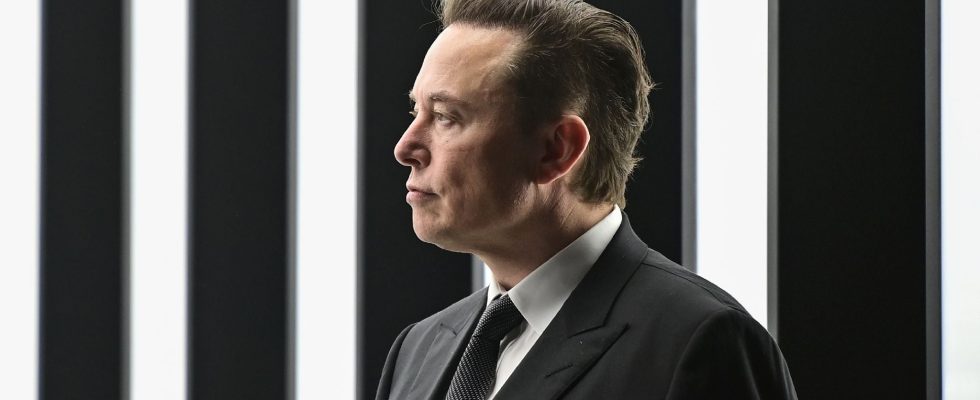The enfant terrible of American tech is still acting up. Billionaire Elon Musk filed a complaint on Thursday February 29 against the company OpenAI, one of the world leaders in artificial intelligence. His complaint also concerns the two co-founders of ChatGPT’s parent company, Sam Altman and Gregory Brockman. His legal action puts the young company back in the spotlight, four months after the crisis caused by the surprise dismissal – then the return – of Sam Altman decided by the company’s board of directors.
Understanding the reasons for this legal action involves going back nine years. In 2015, on December 11, several figures of American entrepreneurship came together to found OpenAI, designed as a non-profit organization. The “raison d’être” of this company? Research on artificial intelligence. His long-term goal? Ensuring that AI “benefits humanity as a whole”, promised the press release announcing the birth of the company, “without being constrained by the need to generate a financial return”.
More than a billion dollars had been raised to create the research center. Among the co-founders of OpenAI were Sam Atlman and Gregory Brockman, but also Peter Thiel, Ilya Sutskever and… Elon Musk. The entrepreneur from South Africa, also founder of SpaceX and director of Tesla, has been raising alerts in previous years about the potential dangers surrounding AI. The challenge of OpenAI was to develop a royalty-free model, capable of countering the behemoths in the sector (Meta, Amazon, Google). “I am the reason why OpenAI exists,” he even said last year at CNBC.
Musk-Altman, the turning point in 2018
But in 2018, an announcement was like a bolt from the blue in tech: Musk was leaving OpenAI. A brief statement noted a “potential conflict of interest” as Space X and Tesla also invested and recruited in artificial intelligence. Raised to the head of the company, Sam Altman decides to modify the status of OpenAI, with the aim of improving the algorithm models. For the AI genius from Chicago, the ends justify the means. The altruistic discourse has given way to a new strategy, dedicated to attracting new investors and generating more revenue. The company’s unique legal model is now a “capped profit business”.
This new strategy, which led OpenAI to move closer to Microsoft, quickly encountered hostility from Elon Musk. For good reason: this alliance comes into confrontation with the initial spirit of the company, originally thought of as a “non-profit” company. The owner of the social network X (formerly Twitter) believes that OpenAI has betrayed this commitment. In his complaint, he believes that with the current board of directors, “the company is not just developing but actually refining artificial general intelligence to maximize Microsoft’s profits, rather than for the good of humanity”.
A “breach of the initial contract”?
Denouncing a “breach of the initial contract”, the sulphurous billionaire points in particular to the rejection of “open source” by OpenAI. While this model ensured the accessibility and transparency of the software developed by the company founded in 2015, it had not made the code of its GPT-4 software public. “Contrary to the Founding Agreement, Defendants chose to use GPT 4 […] as proprietary technology aimed at maximizing profits for the largest company in the world,” accuses Elon Musk.
To compete with OpenAI, the Tesla boss launched his start-up in 2023 – soberly named xAI – and designed his own chatbot, “Grok”, a rival to ChatGTP which he describes as “anti-woke”. In his complaint filed this Thursday in a San Francisco court, Elon Musk requests that GPT-4 no longer be included in the license granted by OpenAI to Microsoft. His complaint highlights the divergent currents that run through this flourishing sector, divided between lucrative and altruistic conceptions of the development of AI.
